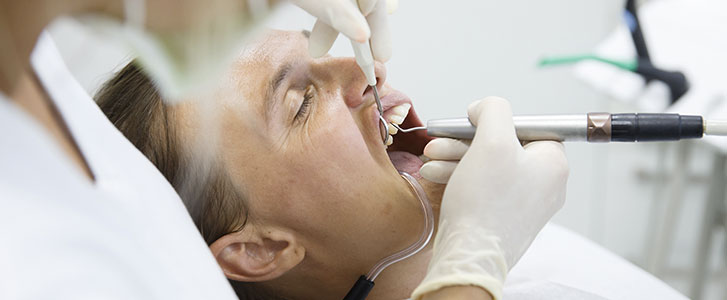Sinusitis and toothache are two diseases that are often related to each other. Dental caries, abscesses, pulpits, can give rise to odontogenic sinusitis with severe discomfort for the patient even for long periods of time.
It can happen frequently that dental caries and periapical abscesses of the maxillary teeth degenerate into odontogenic sinusitis which can be very painful and disabling for patients, causing them discomfort even for prolonged periods of time.
Sinusitis and toothache: what treatment?
Odontogenic sinusitis, which therefore originates from a dental problem, can be treated with antibiotics, administration of saline nasal irrigation on a daily basis or with endoscopic sinus surgery, all complementary treatments to dental treatments aimed at resolving the origin of the sinusitis. .
In a recent survey, however, the researchers wanted to evaluate whether the sinusitis derived from a toothache could be resolved with the exclusive dental treatment or if and under what conditions surgery was necessary.
The study was published in the American Journal of Rhinology & Allergy of March 2021.
33 patients with sinusitis caused by dental caries and periapical abscess participated in the survey. Patients with sinusitis caused by dental implants, trauma, surgery or tooth extraction were instead excluded from the sample.
All patients were initially treated with dental therapies without resorting to endoscopic sinus surgery.
Sinusitis treated with dental therapies
Of the 33 patients admitted to the sample in whom sinusitis and toothache were closely related, 22, or 67%, were treated with dental and medical management and 11, or 33% of the sample, required endoscopic sinus surgery to following the failure of dental treatment.
From the data that emerged during the research, the failure of dental therapies occurred in most cases in smokers.
Sinusitis and toothache: what solution
At the end of the analysis, the researchers highlighted that two thirds of patients with odontogenic sinusitis caused by dental caries and periapical abscess are curable with dental treatment alone without the need for endoscopic sinus surgery.
This consideration will have to be confirmed in similar studies, but, taking into account what has emerged, it is important that in cases of patients with sinusitis and toothache, a dental treatment is immediately proceeded to solve the problems due to dental caries and periapical abscess.


















